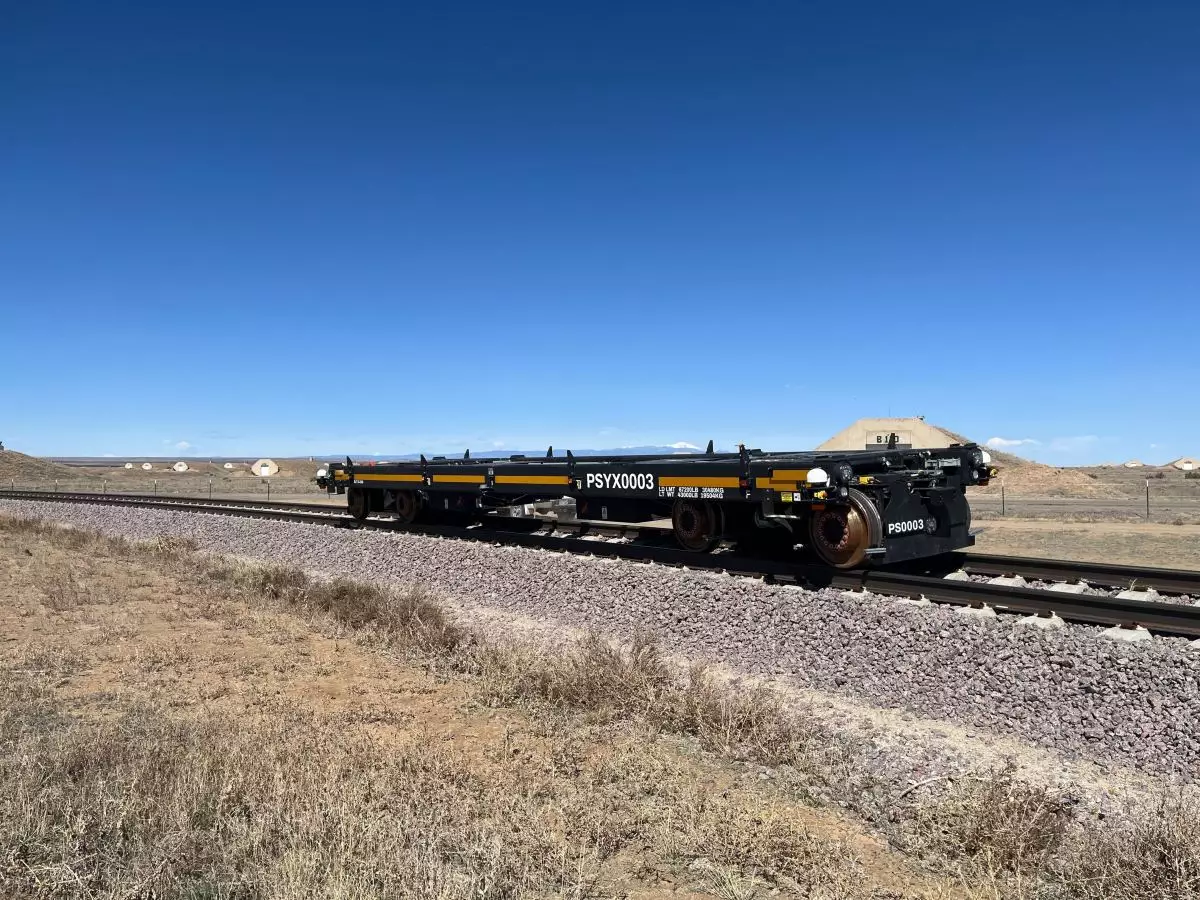In the sprawling landscape of American logistics, trucks dominate the scene, transporting approximately two-thirds of the colossal 20.2 billion tons of freight each year. This operating model may soon face disruption, thanks to innovative players like Parallel Systems. Under the visionary leadership of Matt Soule, the Los Angeles-based startup aspires to reinvigorate the long-standing yet underappreciated railroad system. By leveraging a blend of electric power and autonomy, the company is not only optimizing freight logistics but is also presenting an ecological alternative to a deeply entrenched industry norm.
Soule’s ambitious proposition centers on making rail transport viable for short-distance deliveries, a segment where trucks have traditionally held sway. His company’s approach could mark a meaningful inflection point in freight logistics, where aligning costs with efficiency could reinstate rail as a competitive alternative.
Autonomous Technology Meets Traditional Rail Systems
Parallel Systems has developed revolutionary autonomous freight technology that doesn’t overhaul current rail infrastructure but enriches it. By creating battery-powered, autonomous train cars that can seamlessly integrate with existing freight systems, Soule’s vision minimizes operational costs while enhancing safety. The ability to autonomously connect and disconnect freight cars not only speeds up loading and unloading processes but also mitigates risks associated with the manual operation. The technical modifications allow for rapid braking, thereby increasing safety margins during transit, which is critical for a system haunted by historic accidents.
Soule succinctly articulates this vision: “We’re using a different physical architecture to accomplish truck competitive economics at small scale rather than big scale.” This innovation doesn’t suggest a wholesale replacement of traditional trains, but rather a collaborative evolution that coexists alongside conventional operations. Such a dual approach acknowledges the realities of existing infrastructure while simultaneously pushing toward a more modernized system.
The Federal Backing and Capital Infusion
In a noteworthy voting of confidence for Parallel Systems, the Federal Railroad Administration has granted approval for the company to pilot its groundbreaking technology in Georgia. This pilot program, covering a 160-mile stretch from the Port of Savannah to various distribution sites, presents a critical opportunity for real-world testing. Moreover, the recent success in securing $38 million in Series B funding further cements the company’s potential, bringing total backing to more than $100 million. Investors have recognized that the movement of goods significantly impacts consumer companies, even if it deviates from their usual portfolio focus.
Sophie Bakalar from Collaborative Fund beautifully encapsulates the sentiment around this investment opportunity, emphasizing the unique positioning of Soule’s team to tackle a convoluted industry problem—a scenario that often sees innovation stifled by legacy practices.
Breaking the Tradition of Resistance to Innovation
While Soule himself lacks a rail-specific background, his extensive experience in regulated industries significantly contributes to his unique perspective. Having spent an impressive two decades in aerospace, particularly at SpaceX, Soule honed a keen understanding of how technological advancements can transform old sectors. This angle positions him as an unlikely but potential disruptor in an industry marked by slow adoption of innovative practices.
Soule’s insights about the stagnancy in freight yards are particularly poignant. “This is like a generational innovation in terms of freight,” he argues, highlighting a market eager for transformation yet historically resistant to change. His determination to shift paradigms not only suggests immense potential for the rail industry but also emphasizes a broader narrative of technological salvation across various sectors traditionally viewed as stale.
Global Aspirations Amid Local Challenges
As Parallel Systems seeks to expand its influence, the emphasis currently revolves around domestic and Australian markets. Demand for disruptive solutions is palpable, especially in light of potential tariff challenges that could further incentivize businesses to reconsider logistical strategies. Soule’s awareness of global interest signals that the appetite for innovation transcends borders, potentially amplifying the urgency for solutions that combine efficiency and sustainability.
In a world grappling with climate change and rising logistical costs, innovations like those anticipated from Parallel Systems could serve as crucial catalysts for substantial industry-wide transformations. This project captures not only the promise of technological advancement but also the critical need for responsible environmental practices in freight transport.
Ultimately, Parallel Systems stands as a testament to the potential that modern innovation holds in reimagining traditional industries. By aligning autonomy, safety, and ecological considerations, the company is poised to herald a new era for freight logistics—a change that could prove monumental in reshaping how goods are transported in the 21st century.

